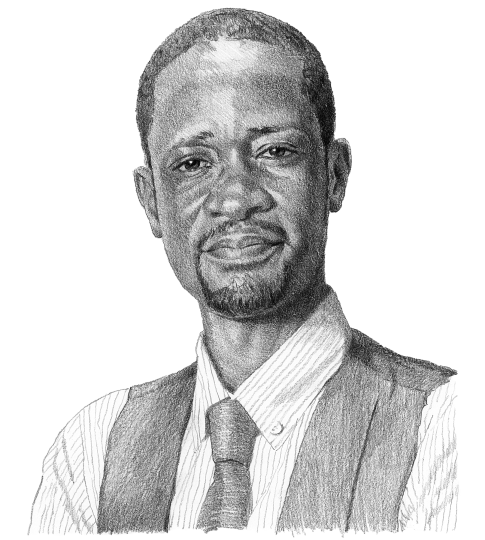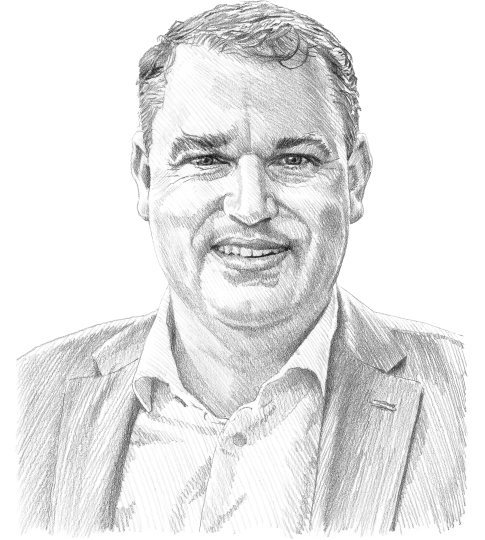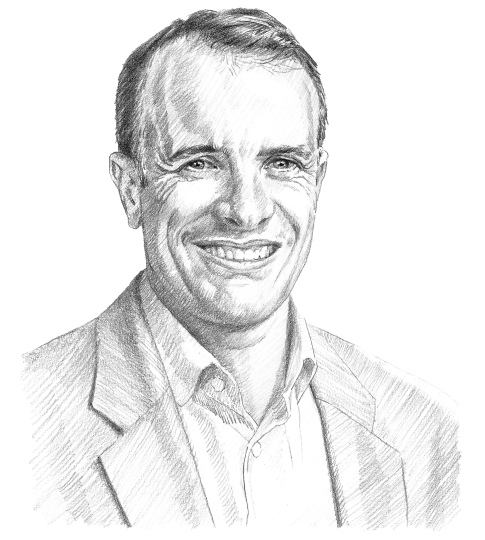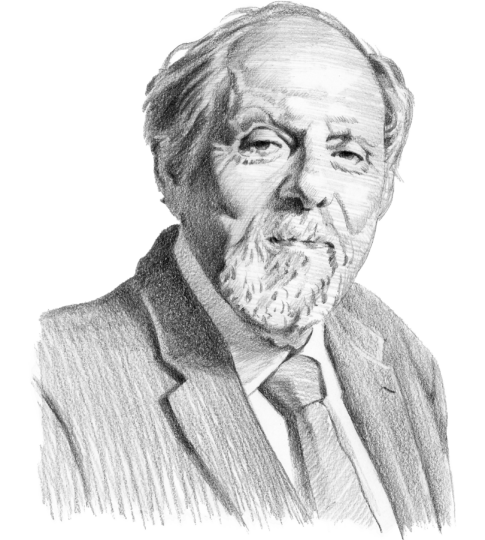Senegal as a strategic player in the Sahel
Political and security shifts have suddenly positioned Senegal as a key regional actor.

In a nutshell
- Rising instability in the Sahel has created a deep rift in West Africa
- ECOWAS has struggled to negotiate with junta-led states following recent coups
- Senegal’s stability and economic growth have made it a pivotal mediator
Over a decade ago, extremists from southern Algeria, empowered by Tuareg nationalism and the fall of Muammar Qaddafi, seized parts of northern and central Mali, as well as areas of Niger. Within weeks, they established an Islamic state in the area, causing significant destruction to important sites including the historic city of Timbuktu. Al-Qaeda’s Maghreb branch and the Islamist group Ansar al-Din inflicted brutalities on the local population.
This rapid expansion caught the attention of international and regional security actors. Before things could get worse, the Economic Community of West African States (ECOWAS) deployed regional forces to protect urban centers from militant takeovers. In 2013, the French-led Operation Serval was launched to drive extremists from towns and cities in Mali and Niger.
The two security initiatives showed early successes. International forces under the United Nations were subsequently deployed, as France launched Operation Barkhane. Though led by French forces, its goals included creating a more coordinated regional force among countries in the Sahel and initiating negotiations with separatists and minority groups in the region. As a result, the G5 Sahel – a military alliance comprising Burkina Faso, Chad, Mali, Mauritania and Niger – was formed. Even though Senegal is technically a Sahel state, it was not a member of the G5 Sahel as it was not directly threatened.
Escalating extremism in the Sahel
In 2017, al-Qaeda affiliates in the region formed a “federation” called Jama’at Nusrat al-Islam wal-Muslimin (JNIM). The revamped group launched audacious attacks on national and international forces in Mali, Burkina Faso and Niger. Coastal nations including Benin, Ivory Coast and Togo were also attacked. A breakaway JNIM faction currently represents Islamic State in the Sahel, and has also carried out indiscriminate attacks in recent years.
While insecurity posed by extremism remains the number-one challenge for the regional actors, a new security concern has emerged since 2020. Military intervention, marked by a series of coups, has become a major issue threatening nearly five decades of regional integration and protocols in West Africa. In 2020, Mali’s military staged a coup, citing deepening insecurity and the failure of civilian leaders and international forces to combat the growing threat of terror groups. Similar reasons were given as motivation for coups in Burkina Faso and Niger.
Facts & figures
All three countries, as ECOWAS members, violated the bloc’s protocols against undemocratic power transitions. As expected, the group imposed sanctions on the junta-led states. However, the consequences have been far-reaching, with an unprecedented rift now threatening the foundation of the regional organization.
The situation peaked after the 2023 coup in Niger, when ECOWAS threatened military action to reinstate the ousted leader. However, the bloc backed down after some members showed ambivalence and urged caution. Additionally, the junta-led governments of Burkina Faso and Mali warned they would support Niger militarily if ECOWAS intervened.
After failed negotiations and shifting geopolitical dynamics, including the withdrawal of French and international forces, the three junta-led Sahel states formed a federation to pursue their own integration. In July 2024, the group signed multiple agreements and defiantly rejected any ECOWAS overtures after announcing their breakaway earlier in the year.
Senegal’s role as a mediator
The decision by juntas to break away from ECOWAS has created an unprecedented situation. Except for the withdrawal of Mauritania in 2000, all members had remained with the bloc until the current schism.
Senegal’s newly elected president and the youngest African leader, Bassirou Diomaye Faye, who took office in April, was appointed by ECOWAS at its most recent summit in Abuja, Nigeria, as a special mediator between the military governments in the Sahel and the bloc. Dakar has never before played the role of mediator in the disputes between juntas and ECOWAS.
When the coups began in 2020, Senegal was among the countries that backed sanctions against the coup-led states and cooperated in their enforcement. Sharing a long border with Mali and serving as a key trade route for the landlocked country, Senegal also joined Nigeria and others in threatening military action to reinstate Niger’s ousted president, Mohamed Bazoum.
More about the Sahel
- Senegal presidential election brings upstart Faye to power
- Red alert in the Sahel
- Niger breaks from France and embraces Russia
Senegal’s policy, which previously aligned closely with the rest of the bloc, was shaped by former president Macky Sall. The election of a new president marked a considerable shift in the country’s foreign policy. Mr. Faye has so far engaged in shuttle diplomacy across the Sahel, with mixed results. After meeting with interim President of Mali Asimi Goita in Bamako and President of the Transition of Burkina Faso Ibrahim Traore in Ouagadougou, he expressed cautious optimism about convincing the juntas to rejoin ECOWAS.
Senegal is the fourth-largest economy in ECOWAS, which is comprised of fifteen countries. Its recent offshore oil and gas discoveries, along with its mining potential, have boosted its regional influence. Despite a turbulent pre-election period, Senegal remains one of the region’s most stable countries and is one of only two ECOWAS states never to have experienced military rule. These factors are key to its credibility as a mediator.
Now led by a party that campaigned on anti-French and leftist ideas, Senegal’s new government is seen as more sympathetic to the juntas, which have expelled the French military and diplomats. As a result, President Faye is likely to be welcomed not only by the military regimes but also by their supporters. ECOWAS has recognized the strengths of Senegal’s new administration and aims to leverage that in addressing the ongoing rift, which shows no signs of abating.
Scenarios
Most likely: Senegal’s mediation efforts are challenged by Russian influence and extremism
One of the key challenges President Faye faces is the growing Russian influence in the Sahel. Just days after his visits to the region’s capitals, Russian Foreign Minister Sergei Lavrov toured the area, stopping in Guinea, Burkina Faso and Chad, after previously visiting Mali.
As it stands, Russia has not shown much interest in helping solve the schism in West Africa. Moscow, acting as the main lifeline for the military regimes by providing protection through former Wagner private armed forces and other military support in exchange for access to natural resources and diplomatic backing, appears to benefit from the regional rift. This complicates Mr. Faye’s task, as the junta governments may see Russia as a better alternative to negotiations. For now, regime protection is their priority, and Russia is willing to provide it.
Dakar’s mediation efforts may involve both state and non-state actors, as well as external forces, whose interests could derail attempts to resolve the rift. As the special mediator, Mr. Faye is likely to approach the situation with more flexibility, aiming for amicable solutions. However, there is no easy path for Senegal.
The resurgence of bold attacks by JNIM and other extremist groups across Mali, Burkina Faso and Niger, along with their expansion into coastal states like Ivory Coast, Togo and Benin, remain a top concern for regional actors. Additionally, Russia’s involvement in the Sahel, offering support and protection to military regimes, further complicates mediation efforts.
Somewhat likely: Cooperation deteriorates as juntas resist rejoining ECOWAS
Another challenge for Dakar’s mediation role will be sticking to timelines. The longer the rift persists, the more security cooperation against terrorism deteriorates. With the rise in terror attacks and radicalization, the region urgently needs counterterrorism collaboration, especially in intelligence sharing. Such cooperation thrives on good relations between states, but the current divide hampers this, adding pressure on President Faye. Any delays could worsen the security situation and make negotiations less effective.
Least likely: Junta states rapidly reintegrate into ECOWAS
A major obstacle for the juntas is the ECOWAS protocol barring coup leaders from contesting elections the bloc oversees – since they aim to remain part of their countries' political future, breaking away from ECOWAS gives them the freedom to bypass these restrictions. Mediating between juntas determined to protect their interests and a bloc unwilling to bend its rules will require a complex effort, posing a significant challenge for Dakar.
The possibility of a quick resolution between ECOWAS and the junta-led states, without external influence or shifts in regional geopolitics, appears unlikely. Military regimes, buoyed by Russian support, will probably resist reintegrating into ECOWAS without external pressure.
For industry-specific scenarios and bespoke geopolitical intelligence, contact us and we will provide you with more information about our advisory services.










